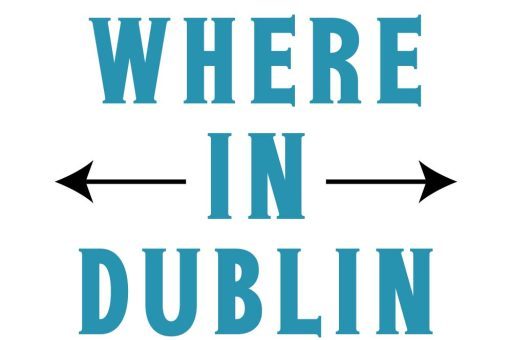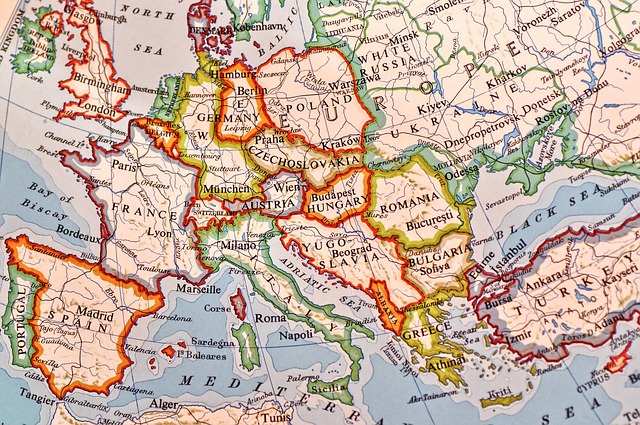When people ask, “Is the United Kingdom a country?” it might seem like a simple yes-or-no question. But based on my overall experience, it’s not that simple. The United Kingdom (UK) is a unique political and geographical entity, and understanding it requires breaking down history, governance, and geography. Let’s explore everything step by step so it’s clear why the UK is not a single country in the way many imagine.
Let’s Understand the United Kingdom Here
At its core, the United Kingdom of Great Britain and Northern Ireland is a sovereign state made up of four distinct countries: England, Scotland, Wales, and Northern Ireland. That’s right, the UK is a country—but it’s also made up of multiple countries. This dual identity confuses a lot of people, especially when comparing the UK to other countries like France, Germany, or Italy, which are single entities.
The UK has a centralized government in London, but each of its countries has some level of autonomy. For example, Scotland has its own parliament, Wales has a Senedd (Welsh Parliament), and Northern Ireland has the Northern Ireland Assembly. From my own personal experience, understanding this division helps a lot when traveling or discussing politics with locals, because people often identify more strongly with their country (like Scotland) than with the UK as a whole.
The Difference Between a Country and a Nation
Before diving deeper, it’s essential to clarify the terms “country” and “nation.” In everyday language, these words are often used interchangeably. However, technically:
A country usually refers to a recognized sovereign state with defined borders, a government, and international recognition.
A nation is more about a group of people who share common cultural, historical, or linguistic traits.
In this sense, England, Scotland, Wales, and Northern Ireland are nations, but they are not fully independent sovereign countries (except in the case of Scotland or Northern Ireland if they were to vote for independence in the future). The UK itself is a country in terms of international law because it represents a single entity in the United Nations and has sovereignty over its territory.
Historical Background
Understanding the UK’s status requires a brief history lesson.
Formation of the United Kingdom
The UK didn’t always exist as it does today. Its formation is the result of centuries of unions:
England and Wales: England formally annexed Wales in the 16th century under the Laws in Wales Acts.
Scotland: In 1707, the Acts of Union joined England and Scotland to form the Kingdom of Great Britain.
Ireland: In 1801, Ireland joined to form the United Kingdom of Great Britain and Ireland. However, most of Ireland became independent in 1922, leaving Northern Ireland as part of the UK.
This layered history explains why the UK contains multiple “countries” within it. Each of these regions maintains its identity, which is why people often say, “I’m Scottish” or “I’m Welsh,” rather than just “I’m British.”
Geography of the United Kingdom
Geographically, the UK is located off the northwestern coast of mainland Europe. It consists of:
Great Britain: The largest island, home to England, Scotland, and Wales.
Northern Ireland: Located on the island of Ireland, sharing a border with the Republic of Ireland.
Over 6,000 smaller islands, including the Isle of Wight, Hebrides, and Orkney Islands.
This geographic spread further blurs the line between a single country and a collection of nations. From my own personal experience traveling across the UK, you immediately notice distinct cultural, linguistic, and physical differences between these regions.
Political Structure of the UK
The UK’s political system is a unitary parliamentary democracy with a constitutional monarchy. This means the monarch is the head of state, while the prime minister leads the government. But unlike most unitary states, the UK practices devolution, giving varying degrees of power to Scotland, Wales, and Northern Ireland.
The Role of the UK Government
The central government in London handles defense, foreign policy, and other national-level issues. Meanwhile:
Scotland has control over health, education, and transportation.
Wales has similar powers in local governance, although smaller in scope.
Northern Ireland has a complex political arrangement due to historical conflicts, with power-sharing between unionist and nationalist parties.
This structure is why the UK is sometimes called a “country of countries.” Each nation has its own identity, laws, and systems, yet they come together under one sovereign state.
National Identity in the UK
National identity in the UK is complicated. People often identify first with their country, then with Britain, and finally with the UK. For example:
A person from Glasgow may say they are Scottish.
Someone from Cardiff may identify as Welsh.
A Londoner might just say they are British.
From my own personal experience, this can cause confusion for visitors. Asking someone “Where are you from?” in the UK may require clarification—are you asking about their country (Scotland, Wales, etc.) or their nationality (British)?
International Recognition
Internationally, the UK is considered a single country. It has one seat at the United Nations, issues passports marked “United Kingdom of Great Britain and Northern Ireland,” and is recognized as a sovereign state.
However, each constituent nation has some recognition in sports and cultural contexts:
Scotland, Wales, and Northern Ireland have their own teams in football (soccer) and rugby.
England competes separately from Scotland in many sports.
This dual identity is rare globally and contributes to the confusion about whether the UK is truly “one country” or many.
Comparisons to Other Countries
The UK’s structure is unusual. Most countries are single entities, like France, Japan, or Brazil. However, there are other examples of countries with multiple nations or regions:
Spain: Catalonia and the Basque Country have strong regional identities.
Belgium: Divided into Flemish, Walloon, and German-speaking regions.
Switzerland: Four linguistic regions with distinct cultures.
The UK stands out because its nations existed as independent kingdoms before uniting, making the historical and cultural identity stronger than in many other states.
Common Misconceptions
Many people have misconceptions about the UK:
England = UK: A huge misconception. England is only one of the four nations.
UK is not a country: Legally, it is a country, but it contains countries within it.
Scotland, Wales, or Northern Ireland are independent: Currently, they are not fully sovereign, though independence movements exist.
From my own personal experience, correcting these misconceptions is essential when teaching geography or discussing UK politics with international friends. It helps prevent awkward conversations and shows respect for local identity.
Independence Movements
Scotland and Northern Ireland have active independence movements, which add another layer to the discussion.
Scotland
The Scottish National Party (SNP) has pushed for a second referendum on independence.
Many Scots feel their distinct history and culture justify sovereignty.
Northern Ireland
Some groups support unification with the Republic of Ireland.
Political agreements, like the Good Friday Agreement, maintain a delicate balance between unionists and nationalists.
While Wales has some nationalist movements, they are smaller in scale. These movements show that even within a “country,” regional identities remain powerful.
Why It Matters
Understanding whether the UK is a country is not just an academic question. It affects:
- Travel planning: Knowing regional laws, currency use (like in Northern Ireland), and cultural norms.
- Politics: Voting systems and representation in Parliament.
- Education: Geography and history lessons often oversimplify the UK, leading to misunderstandings.
- Sports and culture: Supporting local teams requires understanding which nation competes independently.
From my own personal experience, travelers often make mistakes by assuming England equals the UK, missing out on unique experiences in Scotland, Wales, or Northern Ireland.
Conclusion
So, is the United Kingdom a country? Legally and internationally, yes. But it is a country unlike most others: a sovereign state made up of four distinct nations, each with its own history, culture, and governance. From my own personal experience, appreciating this complexity enhances understanding of UK culture, politics, and society.
When thinking about the UK, it helps to remember:
- It is a country in international law.
- It contains countries with unique identities.
- Its history and politics are complex and deeply intertwined.
- National identity in the UK is layered and varies regionally.
In short, the United Kingdom is a “country of countries,” and understanding this distinction opens the door to a deeper appreciation of one of Europe’s most fascinating nations.


